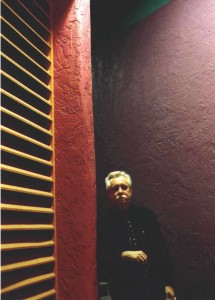My philosophy on documentary making
 When it comes to making documentary films, two things guide my work.
When it comes to making documentary films, two things guide my work.
The first is my responsibility to the people who share their stories and photos. The second is my responsibility to myself and my partners in choosing topics for my documentaries.
My job foremost is to stay out of the way and let the people I interview tell their story. They lived it. They tell it well.
It is not my job to second guess them, nor to paraphrase what they say, so I try to avoid voiceovers wherever possible. I will prune long, winding answers to help consolidate it, but do so only to focus what they’ve said.
Not everyone I shoot ends up in the film. This generally happens when multiple sources have spoken on one topic. In the end, who says what on film is labored over considerably. Every word anyone says on film is transcribed. I spend weeks going through transcripts with highlighter pens and legal pads, fleshing out the various subtopics of the film and trying to arrive at the best way to structure things.
Choosing the right topic to make a film about is largely a personal thing for me, in part because certain stories I know I can tell well. I have to feel that it’s something I am passionate about – so much so that I can convince others to help me make the film, and to come and see it. In truth 90-plus percent of the work is going to be done by me, so it had better be something I care about deeply.
Fortunately I live in Tucson, Arizona which has an endless stream of interesting topics. And the films themselves suggest others. I knew going into the El Casino Ballroom documentary, for example, that I would be doing films in subsequent years on the evolution of the mariachi movement in Tucson, father of Chicano music Lalo Guerrero, and on America’s longest operating youth mariachi – Los Changuitos Feos. But in doing interviews for this and other films, I am seeing material start to accumulate that will likely result in other documentaries. The evolution of Tejano music in Tucson, for example, and the man who brought Mexican folklórico dance to Tucson – Angel Hernandez.
I recognize that I am very lucky to do what I do, and that people trust me with the most cherished details of their lives. I am grateful to them and try to show them the respect they deserve.
